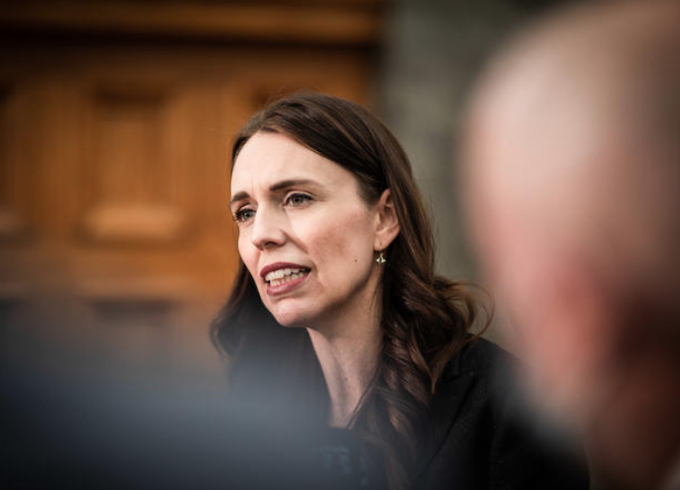
After a record number of covid-19 cases were reported on Saturday, New Zealand’s prime minister believes the country’s omicron peak may be in late March.
The number of omicron cases in New Zealand has not yet reached the number predicted by modellers.
However, New Zealand recorded its largest ever one-day case number with 243 cases on Saturday. On Sunday the cases dropped to 208 and on Monday, there were 188 new cases.
But with the long weekend came lower testing rates. Fewer than 13,000 people were swabbed for covid-19 on Sunday, at least 5000 down on the most recent weekdays.
Epidemiologist Professor Michael Baker believed the daily case numbers may not reflect the true extent of community spread.
Omicron only became a variant of concern at the end of November 2021, it was still very difficult to predict its behaviour, Prime Minister Jacinda Ardern told RNZ Morning Report.
“While there’s uncertainty in case numbers, if you looked at low case profiles in a place like say South Australia and you applied that to New Zealand, you would have something like 10,000 cases a day at its peak.”
High scenario
A high scenario like in New York would mean 30,000 cases a day, she said.
“It’s widely variable and ultimately the defining feature of where we will peak will be booster uptake. The more people who take a booster, the lower the likelihood of our peak.”
Ardern believes New Zealand’s omicron peak may be in late March.
Asked if she regretted not prioritising Māori in the vaccine rollout, Ardern said everything they learnt in the first rollout, they were applying to every vaccine rollout since.
She said the government has worked really closely with Māori on the rollout of paediatric and booster campaigns.
“On the first rollout, we didn’t have the supply to rollout to everyone and so we took an approach that said a whānau-based approach but also one based on those who were at the highest risk.
“And look, I stand by that, but again, as I say, every stage we’ve learnt lessons.”
90% Māori vaccinated
Ninety percent of Māori have now have at least one dose of a covid-19 vaccine.
Meanwhile, in the first Newshub-Reid research poll released last night, Labour and National both saw their popularity increase.
Labour is on 44.3 percent, up 1.6 percentage points and National on 31.3 percent, up 4.4 percentage points.
Ardern said she would not pin Labour’s results on any one thing.
“Ultimately this is again, support for the plan we have and that has been a plan always based on making decisions that are in the best interest for New Zealanders, their health, their wellbeing and our economy,” she said.
“We are in a phase now of shifting up the way that we’re approaching the pandemic, moving to reopen, greater freedoms … and I think we see people are generally supportive of that plan.”
Anti-vaccine convoy to Parliament
A convoy of people protesting against the government’s covid-19 protection measures was expected to arrive in Wellington today.
Ardern told Morning Report she would not be meeting protesters at Parliament.
Lockdowns meant people sacrificed some of their usual rights and abilities to keep others safe, she said.
“Of course New Zealanders all through this pandemic have given up something but in order to gain the health and wellbeing of all communities and it’s worked.”
She said now people were living with fewer restrictions than earlier in the pandemic.
The protest came at a time when the government was changing the way it was doing things because of the extra protection vaccines provide, she said.
This article is republished under a community partnership agreement with RNZ.













































